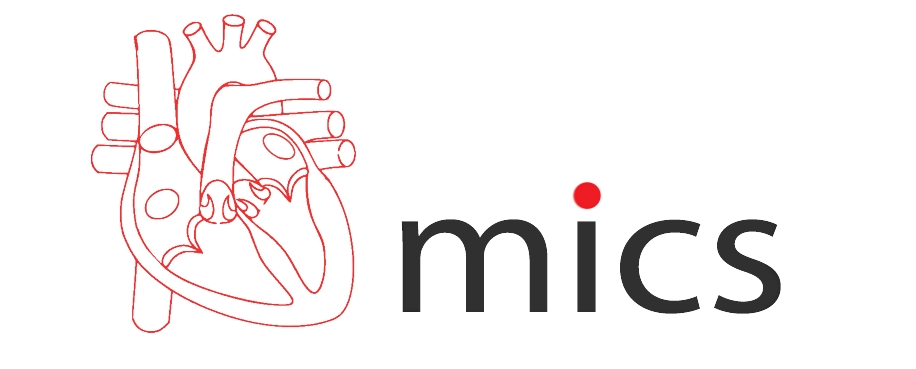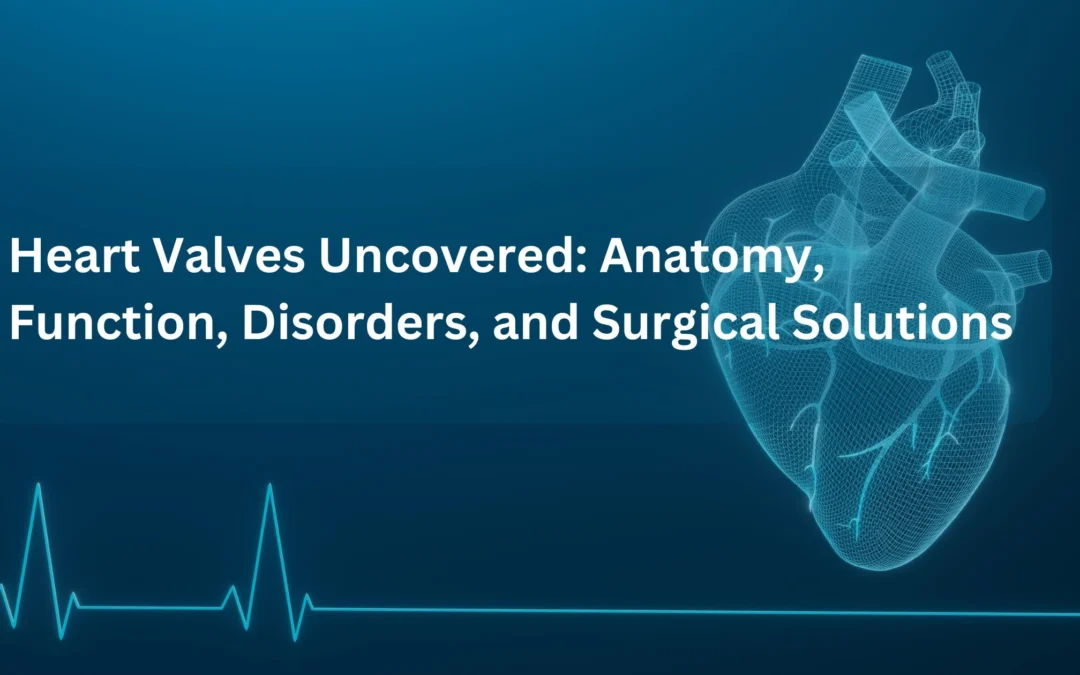Heart valves are critical to our cardiovascular health, working tirelessly to ensure proper blood flow. If you or a loved one are dealing with heart disease or considering heart surgery, understanding these valves is essential. This article provides a detailed yet easy-to-understand overview, perfect for patients, medical students, and aspiring doctors. Let’s explore the anatomy, function, abnormalities, complications, and treatments, including heart valve surgery.
What is Heart Valves?
Heart valves are small but essential structures inside the heart. They act like one-way gates, ensuring that blood flows in the right direction through the heart and into the body. A healthy heart valve opens and closes smoothly with every heartbeat. However, if damaged, it can cause serious complications requiring medical attention or surgery.
Anatomy of the Heart Valves
The human heart has four valves:
Tricuspid Valve
Pulmonary Valve
Each valve is located between different chambers or blood vessels and plays a vital role in the heart’s pumping process. Let’s understand how these valves function within the cardiovascular system.
How Heart Valves Function
Heart valves ensure the smooth, one-way blood flow through the heart, preventing any backflow. They open and close with each heartbeat, helping pump oxygen-rich blood to the body and sending oxygen-poor blood to the lungs for replenishment.
The Four Heart Valves and Their Roles
- Aortic Valve Function: Opens to send oxygen-rich blood from the heart to the body; closes to stop backflow into the ventricle.
- Mitral Valve Function: Allows blood from the lungs to fill the left ventricle; closes to prevent backflow into the atrium.
- Tricuspid Valve Function: Lets oxygen-poor blood flow into the right ventricle; closes to stop leakage into the atrium.
- Pulmonary Valve Function: Directs blood to the lungs for oxygen; closes to prevent backflow into the ventricle.
How Valves Work Together
During contraction (systole), the aortic and pulmonary valves open, while the mitral and tricuspid valves close to push blood forward. In relaxation (diastole), the mitral and tricuspid valves open to refill the ventricles, and the other two remain shut.
Importance of Heart Valves in Maintaining Health
Healthy valves ensure smooth and efficient blood flow. If they do not open or close properly, the heart must work harder to pump blood, leading to fatigue, dizziness, and more severe complications.
Valves ensure:
- Efficient Circulation of oxygen-rich blood.
- Pressure Regulation within the heart chambers.
- Prevention of Backflow, ensuring blood flows only in one direction.
Implications of Untreated Heart Valve Disorders
If left untreated, valve disorders can significantly affect heart function, leading to severe complications such as:
- Heart Failure: The heart becomes too weak to pump blood efficiently.
- Arrhythmias: Irregular heartbeats that can increase the risk of stroke.
- Pulmonary Hypertension: High blood pressure in the lungs due to impaired heart function.
- Cardiac Arrest: Complete heart failure, which can be fatal if not treated immediately.
Common Heart Valve Disorders and Abnormalities
When heart valves don’t function properly, they can cause symptoms ranging from mild discomfort to life-threatening complications. Below are the most common disorders:
- Stenosis: The valve becomes narrow, restricting blood flow.
- Regurgitation: Also called valve leakage, blood flows backward due to improper valve closure.
- Prolapse: When a valve bulges or flaps abnormally, leading to improper closure.
Preparing for Heart Valve Surgery: What Patients Should Know
- Medical Tests and Evaluations: Patients will undergo several tests to confirm they are fit for surgery. Blood tests check for infections, organ function, and clotting issues. Echocardiograms provide images of the heart’s valves and chambers to guide surgical planning. Stress tests measure how well the heart handles physical exertion, revealing any hidden concerns.
- Consultations with Specialists: Meetings with a cardiologist and anesthesiologist are essential. The cardiologist explains the procedure, possible risks, and recovery expectations, helping the patient feel informed. The anesthesiologist reviews the patient’s medical history to determine the safest anesthesia approach and ensures they understand the sedation process.
- Lifestyle Adjustments for Better Outcomes: Quitting smoking improves circulation, reduces lung infection risks, and promotes faster healing. A balanced diet with fruits, vegetables, and lean proteins strengthens the body and controls blood pressure. Light physical activity, when approved by the doctor, can also prepare the body for recovery.
- Mental and Emotional Preparation: Patients benefit from staying mentally strong and emotionally prepared. Learning about the procedure and discussing concerns with doctors can ease anxiety. Support from family, friends, or counselors is also important for maintaining a positive mindset throughout the process.
Treatment Options: Heart Valve Surgery
- Valve Repair is ideal for minor valve deformities or leaks. Surgeons reshape the valve without replacing it, leading to a faster recovery while preserving the patient’s natural valve.
- Valve Replacement is necessary for severely damaged valves. Patients can opt for a mechanical valve, which is made from durable materials and lasts longer but requires lifelong use of blood thinners, or a biological valve, made from animal or human tissue, which doesn’t require long-term medication but may need replacement over time.
- Minimally Invasive Heart Valve Surgery involves recent techniques, including robotic-assisted surgery, which allows for smaller incisions, quicker recovery, and a lower risk of infection.
Conclusion
Heart valves are small but essential components that play a vital role in maintaining the heart’s efficiency. For patients facing valve disorders, timely diagnosis and treatment are key to avoiding complications. Meanwhile, aspiring doctors must stay updated on the latest surgical techniques and treatments to provide the best care. Whether you are a patient or a medical student, knowing about heart valves can make a life-saving difference

